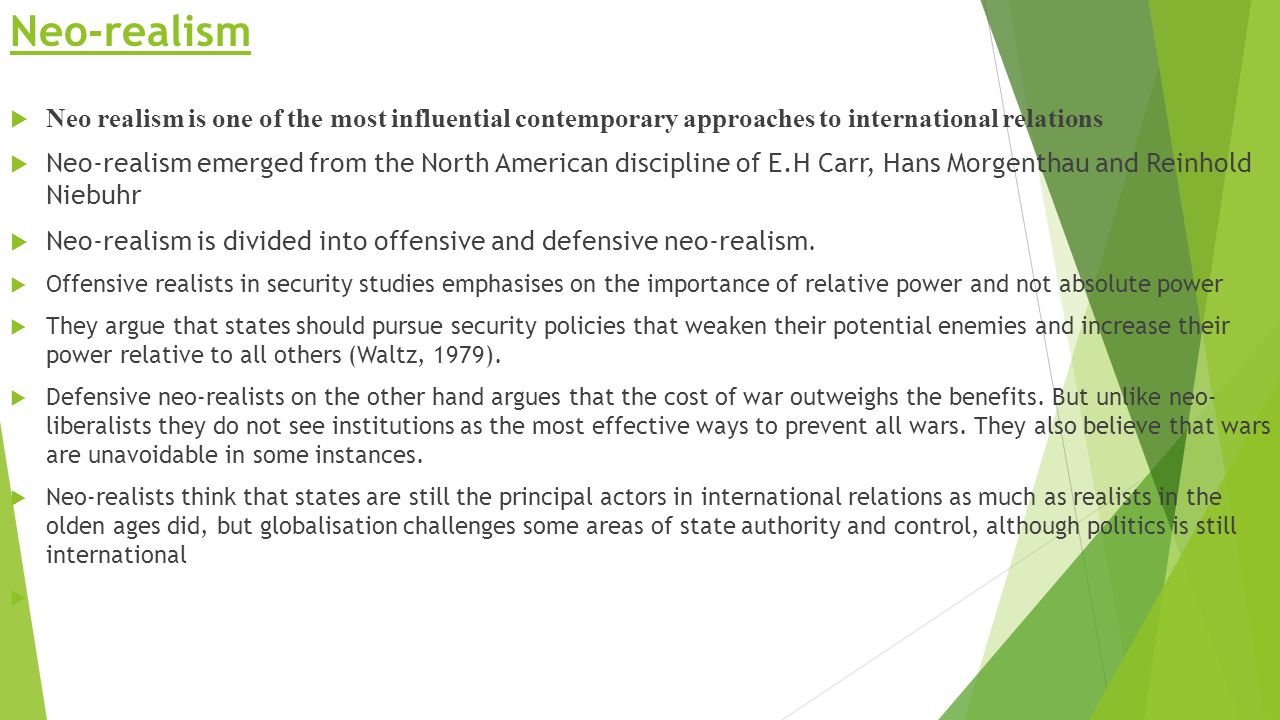Q.8 How the Neo-Realist and Constructivist approaches differ over the study of state behavior in the contemporary international politics? 2019

The Neo-Realist and Constructivist approaches are two contrasting theories in the study of state behavior in contemporary international politics. Neo-Realism emphasizes the role of power and the importance of the international system in shaping state behavior, while Constructivism emphasizes the role of social norms and ideas in shaping state behavior.
Neo-Realism is a theory that posits that states are the primary actors in international relations, and that the pursuit of power and security is the driving force behind state behavior. According to Neo-Realists, the international system is characterized by anarchy, meaning that there is no overarching authority to regulate interactions between states. This creates a self-help system where states must rely on their own capabilities and resources to survive and advance their interests.
In contrast, Constructivism posits that state behavior is shaped by social norms and ideas rather than just material factors. According to Constructivists, the social interactions and ideas that shape international relations are not fixed, but are rather constantly evolving and changing. Therefore, the behavior of states is not determined by anarchy or other structural factors, but rather by the social norms and ideas that shape their perceptions and behavior.
The main difference between these two approaches is their emphasis on power versus ideas. Neo-Realists argue that power is the primary driver of state behavior, and that states will always seek to maximize their power and security in an anarchic international system. Constructivists, on the other hand, argue that social norms and ideas are just as important in shaping state behavior, and that the behavior of states is not predetermined by structural factors.
Another key difference between these two approaches is their approach to change. Neo-Realists argue that the international system is relatively stable and that changes in state behavior are driven by changes in the distribution of power. Constructivists, on the other hand, argue that change in international relations is driven by changes in social norms and ideas, and that these changes can be brought about through dialogue and the construction of new norms.
In conclusion, the Neo-Realist and Constructivist approaches differ significantly in their view of state behavior in contemporary international politics. While Neo-Realists emphasize the role of power and the international system, Constructivists emphasize the role of social norms and ideas in shaping state behavior.